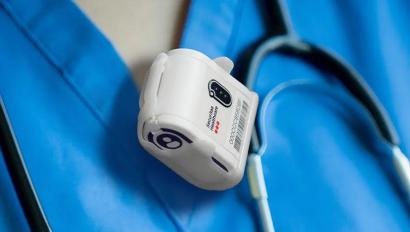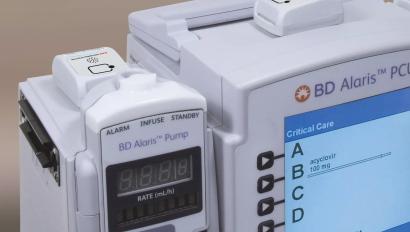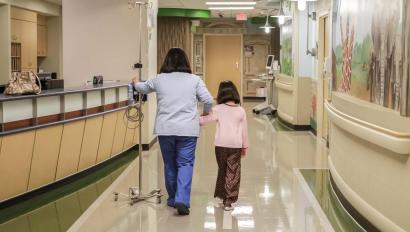Celebrating Nurses: Bridging Care and Innovation at Securitas Healthcare

Every May, National Nurses Month gives us a chance to reflect on the work nurses do and the impact they have—not just in hospitals and clinics, but in patients’ lives, families, and communities. At Securitas Healthcare, we have the privilege of working alongside nurses who help shape how care is delivered, how safety is ensured, and how technology can be used to make their jobs just a little easier.
Making technology work for nurses
Kelly Smith, Director of Clinical Services at Securitas Healthcare, knows firsthand how technology can either support—or disrupt—care delivery. With more than 20 years of experience in healthcare technology, Kelly began her career at the bedside before stepping into leadership roles that allowed her to influence how technology is developed and implemented in clinical settings.
“I noticed early on that the people building and selling healthcare technology didn’t always understand how nurses actually work,” Kelly says. “So, I started working to translate those technical solutions into language and workflows that made sense for caregivers.”
That mission turned into the full-fledged clinical education program that is now taught at Securitas Healthcare. Kelly and the clinical team help ensure that nurses are not only trained on new systems but are also involved in shaping how those systems fit into their daily routines.
Enhancing patient care and staff safety
Kelly’s team supports the rollout of systems like Hugs Infant Protection, used in hospitals around the world to safeguard newborns. While infant security might seem like a technical challenge, Kelly points out that the success of a system like Hugs depends entirely on how well it supports nurses.
From automatic tag checks to system access at the bedside, Hugs is designed to quietly work in the background—alerting staff only when something needs attention or intervention. Nurses can spend more time on care, and less time double-checking manual processes.
The same philosophy—technology that truly supports caregivers—applies to staff protection. Violence against healthcare workers continues to rise, with nurses often on the front lines of this crisis.
“We hear from nurses who’ve been verbally threatened, physically assaulted, or left feeling completely alone in an unsafe situation,” Kelly says. “And those experiences stick with you.”
That’s why Securitas Healthcare’s Staff Protection solution is designed not just as a response tool, but as a proactive support system. Using discreet, wearable badges equipped with panic buttons, nurses can alert security or designated responders—with location data—if they feel threatened or are in distress.
“We’re giving nurses a lifeline. It’s not just about reacting in a crisis—it’s about making sure they never feel like they have to face a dangerous situation alone.”

This kind of support can be especially critical in behavioral health units, emergency departments, and other high-risk areas—but it’s meaningful across every care setting. In a recent survey we conducted at the 2024 AWHONN Annual Nursing Convention, 76% of healthcare workers reported they experience workplace violence multiple times per year.
Because solutions like Hugs and Staff Protection run on the same RTLS platform, hospitals can streamline their approach to safety protecting both caregivers and patients through a single, cohesive system. It’s a practical way to reinforce what should be a given in any hospital: that the safety of caregivers is just as important as the safety of patients.
A message of gratitude
This Nurses Month, we’re honoring the skill, strength, and compassion that nurses bring to every shift. You’re the ones at the heart of healthcare. You keep patients safe, comfort families, and lead your teams with courage and clarity.
And while one month will never be enough to thank you to the nurses across our clinical team and at our client sites for all that you do, we hope it reminds you of how deeply appreciated you are.
From all of us working behind the scenes—thank you for your care, your voice, and your leadership.
Your voice matters. Your expertise drives innovation. Thank you for all that you do.
























